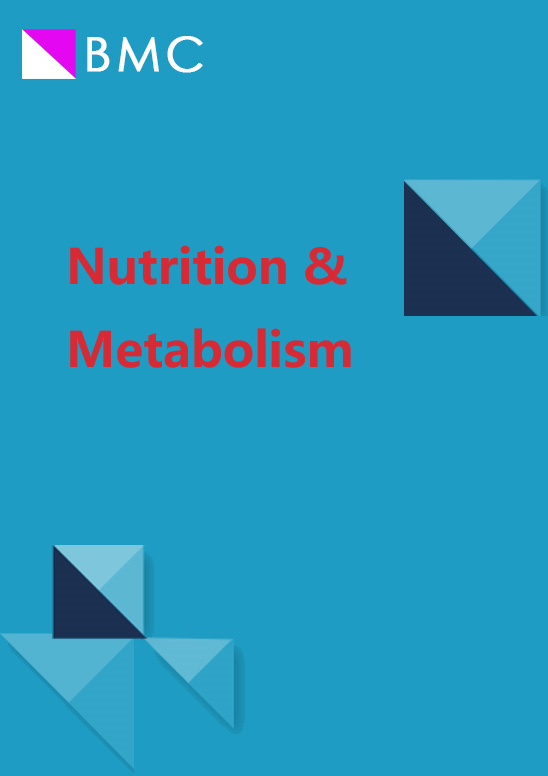补充奇异籽(Salvia hispanica L.)对超重受试者心脏代谢健康的影响:对研究性临床试验的系统回顾和荟萃分析
IF 3.9
2区 医学
Q2 NUTRITION & DIETETICS
引用次数: 0
摘要
肥胖是一个与各种慢性疾病相关的重大公共卫生问题。研究表明,奇异籽具有改善心脏代谢健康的潜力。然而,由于研究的多样性和研究设计的不一致性,要充分了解奇异籽对超重人群的临床效果还需要进一步的调查。本综述旨在通过荟萃分析全面分析奇异籽对超重人群心血管代谢指数影响的现有证据。我们在 PubMed、Web of Science、Scopus 和 Embase 数据库中进行了一次全面的文献检索,时间跨度为 PubMed、Web of Science、Scopus 和 Embase 数据库建立之初至 2024 年 3 月 1 日,目的是找出评估奇异籽对超重人群心脏代谢指数影响的随机对照试验(RCT)。搜索策略包括两个医学主题词(MeSH)。经过筛选,最终纳入了 10 项 RCT。研究数据包括受试者特征、研究设计和血清生物标志物的变化,并使用 Stata 软件版本 18 进行了提取和分析。荟萃分析结果显示,补充奇异果不会显著改变血脂状况,包括甘油三酯(TG)(MD:- 5.80 mg/dL,P = 0.47)、总胆固醇(TC)(MD:- 0.29 mg/dL,p = 0.95)、高密度脂蛋白(HDL)(MD:1.53 mg/dL,p = 0.33)和低密度脂蛋白(LDL)(MD:0.63 mg/dL,p = 0.88)。空腹血糖(FBG)(MD:- 0.03 mg/dL,p = 0.98)、血红蛋白 A1c(HbA1c)(MD:- 0.13%,p = 0.13)和胰岛素水平(MD:0.45 µIU/mL,p = 0.78)相似。然而,补充奇异籽后,C反应蛋白(CRP)显著降低(MD:- 1.18 mg/L,p < 0.0001),但白细胞介素-6(IL-6)(MD:- 0.15,p = 0.70)或肿瘤坏死因子-α(TNF-α)(MD:0.03,p = 0.91)没有明显变化。对体重指数(BMI)没有明显影响(MD:0.1 kg/m2,p = 0.91),但腰围(WC)明显减少(MD:- 2.82 cm,p < 0.001)。此外,补充奇异籽可显著降低收缩压(BP)(MD:- 3.27 mmHg,p = 0.03),但舒张压变化不显著(MD:- 2.69 mmHg,p = 0.09)。研究结果显示出低到中等程度的异质性,I2<50%。补充奇异籽不会对大多数血脂指标和血糖指标产生明显影响。不过,它在降低 WC、BP 和 CRP 方面显示出潜在的益处。虽然奇异籽可以作为心脏代谢健康管理的重要补充,但为了达到最佳效果,奇异籽应作为包括均衡饮食、运动和生活方式调整在内的更广泛健康策略的一部分。本文章由计算机程序翻译,如有差异,请以英文原文为准。
Effects of chia seed (Salvia hispanica L.) supplementation on cardiometabolic health in overweight subjects: a systematic review and meta-analysis of RCTs
Obesity is a significant public health issue associated with various chronic diseases. Research has indicated that chia seeds have the potential to improve cardiometabolic health. However, due to the diversity of research and inconsistencies in study design, further investigation is needed to fully understand their clinical effects on overweight individuals. This review aims to comprehensively analyze the available evidence on the effects of chia seeds on cardiometabolic indices in overweight populations through a meta-analysis. A comprehensive literature search was performed across PubMed, Web of Science, Scopus, and Embase databases from their inception until 01-03-2024 to identify randomized controlled trials (RCTs) evaluating the effect of chia on cardiometabolic indices in overweight subjects. The search strategy incorporated both Medical Subject Headings (MeSH). Following the screening, ten RCTs were finally included. The data, including subject characteristics, study design, and changes in serum biomarkers, were extracted and analyzed using Stata software version 18. The meta-analysis results reveal that chia supplementation no significant changes in lipid profile, including triglycerides (TG) (MD: − 5.80 mg/dL, p = 0.47), total cholesterol (TC) (MD: − 0.29 mg/dL, p = 0.95), high-density lipoprotein (HDL) (MD: 1.53 mg/dL, p = 0.33), and low-density lipoprotein (LDL) (MD: 0.63 mg/dL, p = 0.88). Similarity fasting blood glucose (FBG) (MD: − 0.03 mg/dL, p = 0.98), hemoglobin A1c (HbA1c) (MD: − 0.13%, p = 0.13), and insulin levels (MD: 0.45 µIU/mL, p = 0.78). However, chia seed supplementation was associated with a significant reduction in C-reactive protein (CRP) (MD: − 1.18 mg/L, p < 0.0001), but no significant changes were observed in interleukin-6 (IL-6) (MD: − 0.15, p = 0.70) or tumor necrosis factor-alpha (TNF-α) (MD: 0.03, p = 0.91). There was no significant effect on body mass index (BMI) (MD: 0.1 kg/m2, p = 0.91), but a significant reduction in waist circumference (WC) (MD: − 2.82 cm, p < 0.001) was noted. Additionally, chia seed supplementation resulted in a significant reduction in systolic blood pressure (BP) (MD: − 3.27 mmHg, p = 0.03), though diastolic BP changes were non-significant (MD: − 2.69 mmHg, p = 0.09). The studies showed low to moderate heterogeneity in outcome measures, with I2 < 50%. Chia seed supplementation does not significantly impact most lipid profile parameters and glycemic markers. However, it shows potential benefits in reducing WC, BP, and CRP. While chia seeds can be a valuable addition to cardiometabolic health management, they should be part of a broader health strategy that includes a balanced diet, exercise, and lifestyle modifications for optimal results.
求助全文
通过发布文献求助,成功后即可免费获取论文全文。
去求助
来源期刊

Nutrition & Metabolism
医学-营养学
CiteScore
8.40
自引率
0.00%
发文量
78
审稿时长
4-8 weeks
期刊介绍:
Nutrition & Metabolism publishes studies with a clear focus on nutrition and metabolism with applications ranging from nutrition needs, exercise physiology, clinical and population studies, as well as the underlying mechanisms in these aspects.
The areas of interest for Nutrition & Metabolism encompass studies in molecular nutrition in the context of obesity, diabetes, lipedemias, metabolic syndrome and exercise physiology. Manuscripts related to molecular, cellular and human metabolism, nutrient sensing and nutrient–gene interactions are also in interest, as are submissions that have employed new and innovative strategies like metabolomics/lipidomics or other omic-based biomarkers to predict nutritional status and metabolic diseases.
Key areas we wish to encourage submissions from include:
-how diet and specific nutrients interact with genes, proteins or metabolites to influence metabolic phenotypes and disease outcomes;
-the role of epigenetic factors and the microbiome in the pathogenesis of metabolic diseases and their influence on metabolic responses to diet and food components;
-how diet and other environmental factors affect epigenetics and microbiota; the extent to which genetic and nongenetic factors modify personal metabolic responses to diet and food compositions and the mechanisms involved;
-how specific biologic networks and nutrient sensing mechanisms attribute to metabolic variability.
 求助内容:
求助内容: 应助结果提醒方式:
应助结果提醒方式:


